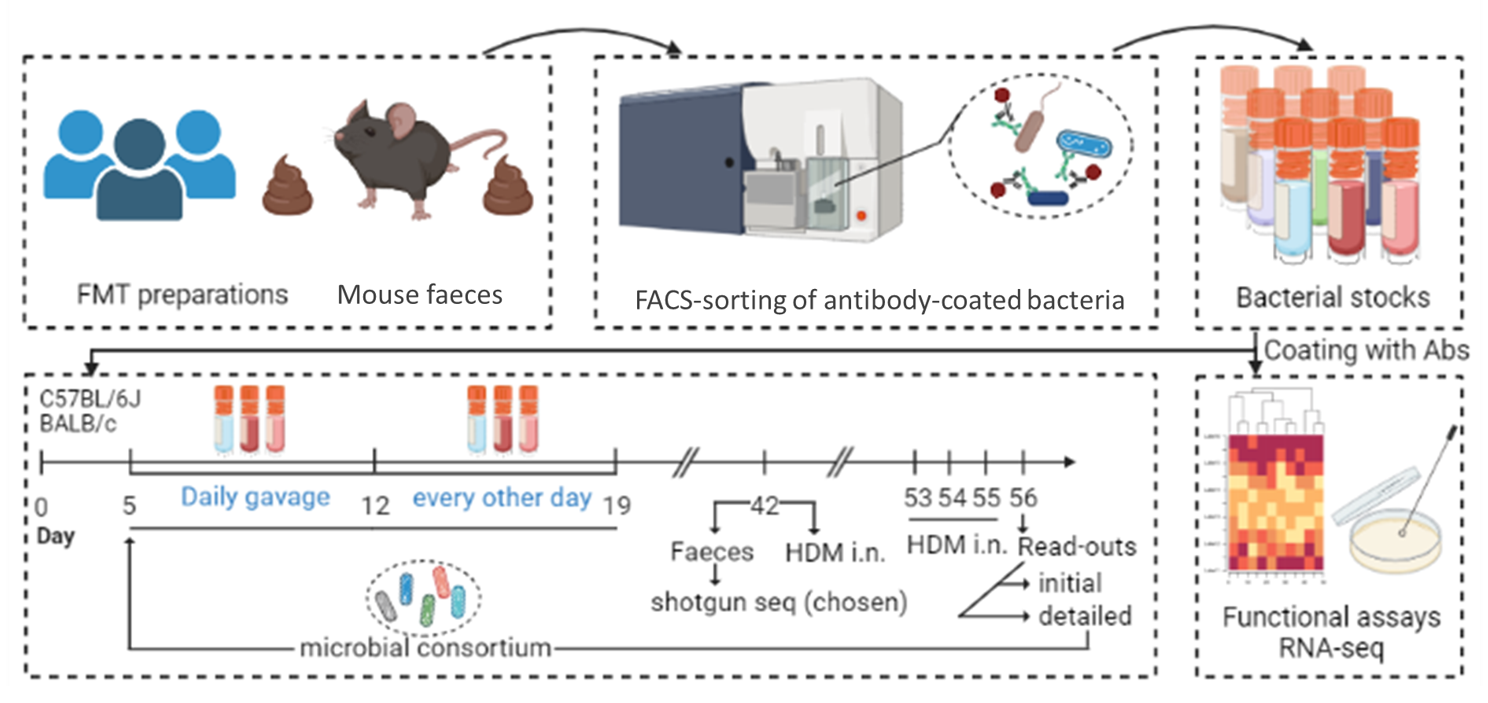
Over the past 15 years, significant progress has been made in understanding the role of microorganisms that inhabit our bodies (also known as the „microbiome”) in shaping physiological processes. As a result, interest in probiotics has surged, with these microorganisms being promoted as „beneficial” bacteria that positively influence various functions of the human body, including our immune system. However, despite marketing claims regarding the effectiveness of probiotics in preventing or treating diseases (including asthma), scientific studies have shown their low efficacy in medical contexts.
There are two key reasons explaining the ineffectiveness of probiotics. The first is the selection of inappropriate bacterial strains, and the second is the lack of effective colonization in the digestive system.
In this research project, we propose strategies to address both of these issues. Our first goal is to investigate the prophylactic and therapeutic potential of novel bacterial strains in the context of asthma. Our second goal is to develop a method to enhance the effectiveness of bacterial colonization (of known and novel probiotics) in the intestine.
These solutions pave the way for the commercialization of products that are not only unique on the market but, most importantly, more effective.



